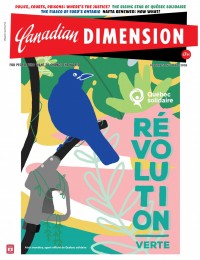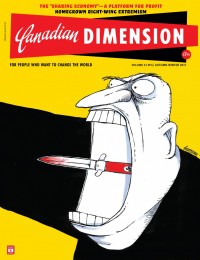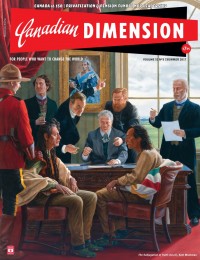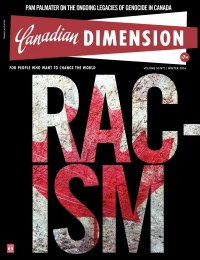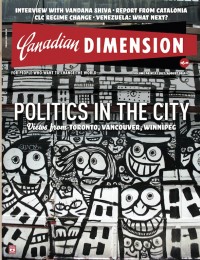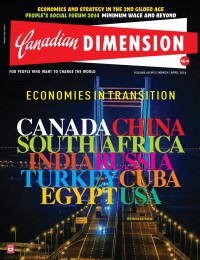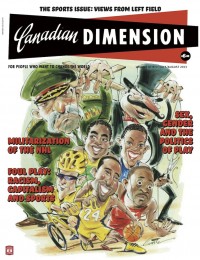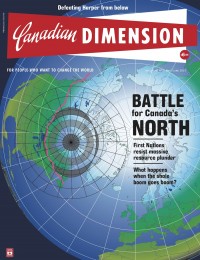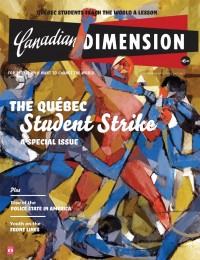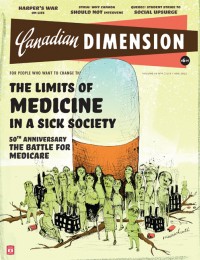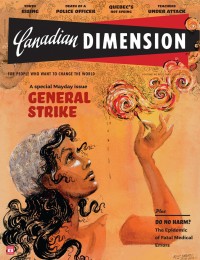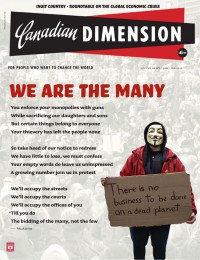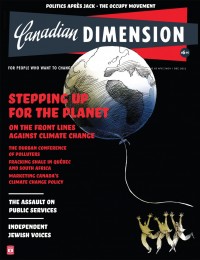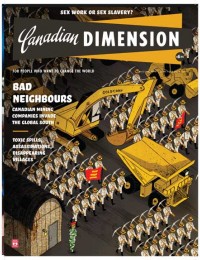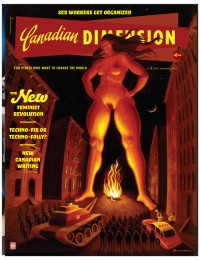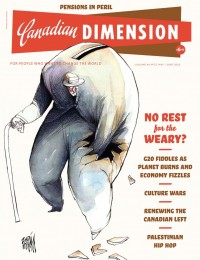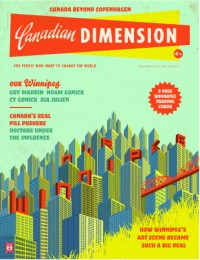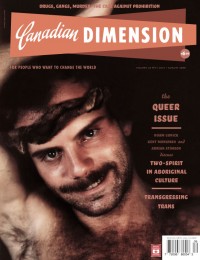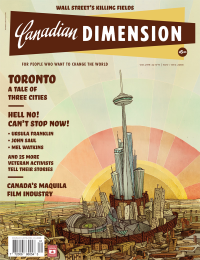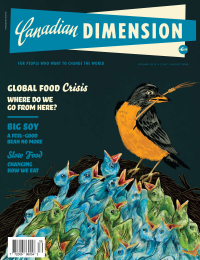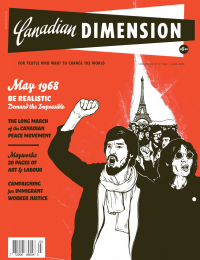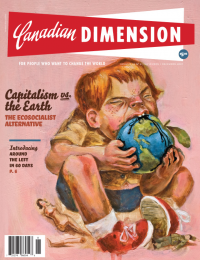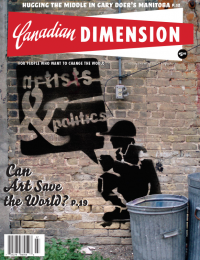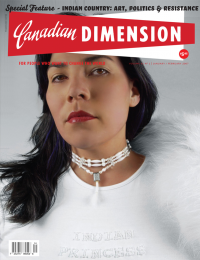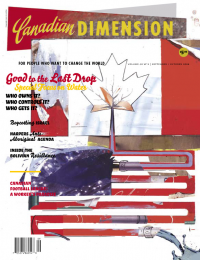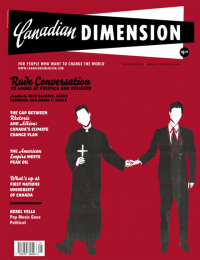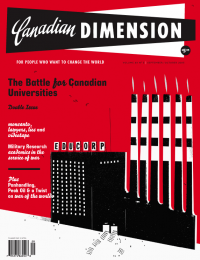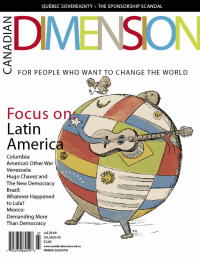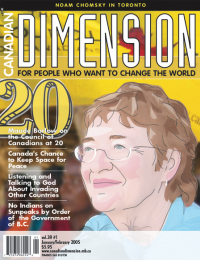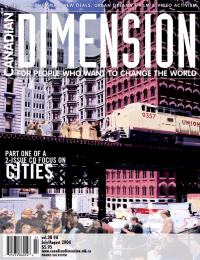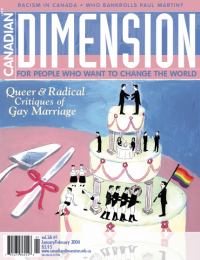The Resistible Rise of the Creative Class
“The Creative City” should immediately strike one as an odd phrase, one that we could very well do without. Because it has become such a buzz word since the publication of American consultant Richard Florida’s urban economic policy manual The Rise of the Creative Class, however, not everyone may feel this way. Indeed, we forget too easily in the company of our “bohemian” neighbours that cities have been creative places for much of human history, and especially so after the rise of capitalism; and that creativity itself is a fundamental feature of human nature, at least according to Karl Marx’s view on the matter.
Who except Florida and his clients could talk about creativity and class without attending to the contradictions of capitalism? Certainly not Marx or Engels. In The Communist Manifesto, they famously praised the bourgeoisie for having “played a most revolutionary part” in history; for being a class that “cannot exist without constantly revolutionizing the instruments of production, and thereby the relations of production, and with them the whole relations of society.” That is to say, “constant revolutionizing of production, uninterrupted disturbance of all social conditions, everlasting uncertainty and agitation distinguish the bourgeois epoch from all earlier ones” – by any conceivable index of “creativity,” “innovation,” or “growth.”
Yet the same historical process, Marx observed, also creates the proletariat, the massive working class concentrated in cities, upon whose exploited labour arise the bourgeois “wonders far surpassing Egyptian pyramids, Roman aqueducts, and Gothic cathedrals,” such as Florida’s favourites: “Nokia cell phones” and “Lord of the Rings movies.”
While acknowledging bourgeois accomplishments, Marx also defined true wealth in the Grundrisse as “the absolute working-out of [human] creative potentialities,” which fully accords, as Terry Eagleton notes, with his “absolute” moral criterion: the unquestionable virtue of a rich, all-round expansion of the capacities for each individual. Capitalism fails to deliver it, as many have discovered; and so it is the task of those whose creative humanity is denied by this social order to create a better one, with nothing less than a revolution.
The revolution to liberate “human creativity” is now happening right before our eyes, according to Florida’s considered opinion. In case we haven’t noticed, he urges us to join it: “it’s up to us – all of us – to complete the transformation” begun by the world-historical agency of the enviably bohemian “Creative Class.” “The transformation now in progress,” Florida writes in the new preface to the paperback edition, “is potentially bigger and more powerful [than the] great transition from the agricultural to the industrial age.” Such a staggeringly hubristic hypothesis would represent a reckless historical assessment even if professed by a yuppie on drugs. Coming from a Columbia University-educated professor of “economic development” full of liberal chutzpah for cultural and sexual diversity, it is positively irresponsible.
Clearly, Creative Class intends to address not students of history or cities, and definitely not revolutionaries. As Peter Marcuse remarks, it reads rather like a series of “after-dinner speeches” tailored for business elites and “civic leaders” suffering from their late capitalist anxieties. What does Florida offer them? Basically, some numbers (in the form of “indexes” – on “talent,” “technology,” “tolerance,” etc. – correlated to “innovation,” “creativity” and economic “growth” of city-regions) and anecdotes (explaining exactly how “cool” “cool” people are, and why our wonderful cities would be doomed without them) that not only motivate, but also flatter. The lecture-circuit audience has responded to Florida in kind, as evidenced in the website selling his book – www.creativeclass.org. Just click on the modestly labeled button: “The Praise.”
Some academics who lost hold of their social-democratic paddles in the rapid currents of neoliberal globalization have rallied opportunistically to Florida’s rewarding cause. Others see through his patently circular logic. For, in spite of the wealth of statistics mobilized by Florida on behalf of the “Creative Class,” the numbers actually say nothing about how to ensure the well-being of cities, even within the terms of his ill-conceived “indexes” – which are notoriously autocorrelated and pregnant with tautologies. “Places that score high on [the] Tolerance Index,” Florida finds, “are very likely to have a culture of tolerance.” In defense of the index, we sure hope so.
Do good jobs and urban prosperity follow the “Creative Class”? Or is it the reverse? Pressed with such direct questions by critics, Florida pleads innocence and feigns ignorance on the subject of his rambling treatise: “I’m not suggesting that gays and bohemians literally cause regions to grow” because “we are only beginning to understand how to do it.” But like his idol, Bill Clinton, Florida knows how to speak different words to different folks. For the Chamber of Commerce, he has these: “Place is the key … that solves the chicken-and-egg problem, matching people to jobs; jobs to people.” The popularity of the snake-oil rubbed by Florida on boosters obsessed with “competition” and “growth” comes down to three tried and trusted terms: location, location, location.
Surrounded by yes-men (and -women), oblivious to criticism, and blinded by “The Praise,” Florida stays “on message” just like his intellectual sparring partner, George W.: “The real challenge of our time is to compete [sic] the system we have given rise to.” We know that here he means “complete,” and that this is not a typo. For there is more than one such symptomatic slip in Creative Class, especially in Florida’s flawed attempts to demonstrate his (fast fading) familiarity with Left literature. The author of History and Class Consciousness appears in the endnotes as “Georg Lukas [sic],” which is closer to the producer of Star Wars than to the founder of Western Marxism. Likewise, the subtitle of One Market Under God, by Thomas Frank – one of the best critics of the “Creative Class” – reads “Extreme Capitalism, Market Populism, and the End of Economic Development [sic],” whereas the real thing ends with the word “Democracy.” What else can we expect from him: “growth” for “grass”?
No sophisticated psychobabble need be summoned to explain why some people see “development” when they read “democracy,” and “compete” instead of the relatively harmless English word “complete.” Tolerant types may understand us if we say that “the answer is blowing in the wind”: the wind of “competition” and “growth,” of which the H. John Heinz III Professor of Economic Development at Carnegie Mellon University is no longer a respectable scholar, but a striking symptom.
Much the same can be said about his book, which deserves scrutiny not for any inherent intellectual interest, but as an “index” of the moral-political bankruptcy of our “civic leaders” and tenured professors unable to envision an alternative to Third Way neoliberalism and its consequences in cities. If creativity is necessary in this situation, it will not be for the rigorous response to Creative Class that we surely need, but to transcend the historical condition that turns Richard Florida into a celebrity while the bohemians overrun our cities primed for “competition” and “growth” and banish the wretched of the earth to somewhere else.
Kanishka Goonewardena teaches geography at the University of Toronto.
This article appeared in the September/October 2004 issue of Canadian Dimension .





_The_Payment_of_the_Tithes_Bonhams_600_400_90_s_c1.jpeg)







